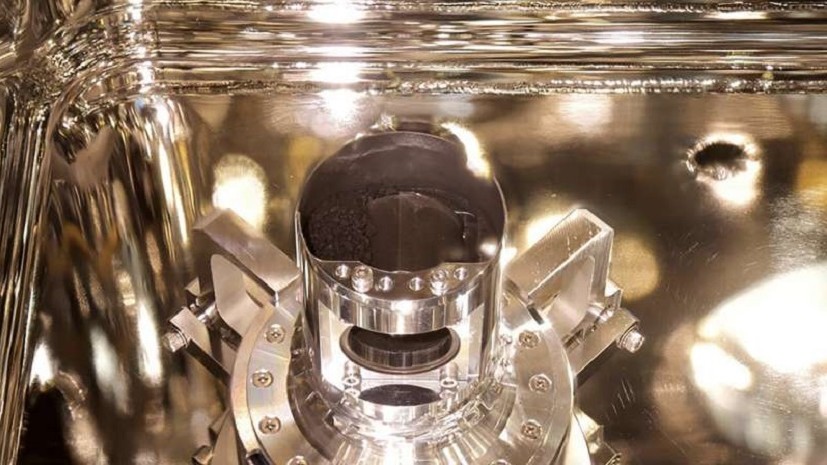Japanese scientists talked about opening a container with samples collected on the asteroid Ryugu.
This was reported by the Japan Aerospace Exploration Agency (JAXA).
According to preliminary estimates, the Hayabusa-2 probe delivered even more soil and gases to Earth than expected.
Particles of coffee-colored soil were found inside the container.
Also, noted in JAXA, from deep space to Earth for the first time delivered a sample of gases that were released from the soil of an asteroid.
The head of the Hayabusa-2 mission, Yuichi, spoke about the successful opening of the container on the JAXA YouTube channel.
Tsuda.
A quote from a video message leading up to the online conference is quoted by the Associated Press.
“We have confirmed that we have received a fairly large amount of soil and gases from the Ryugu asteroid.
We now have extraterrestrial specimens that we have long dreamed of, ”said Yuichi Tsuda.
He also called the delivery of samples "an important scientific milestone."
Recall, the Hayabusa-2 mission to an asteroid located at a distance of about 300 million km from the Earth was launched in 2014.
In the fall of 2018, the probe landed scout robots on the object.
In February 2019, Hayabusa-2 landed on Ryugu and took soil samples, and in April attacked the asteroid with a shock module with explosives.
After the dust cloud settled and a three-month wait, the device returned to the scene of the explosion, again collected soil samples and headed for Earth.
A year later, he flew over our planet and dropped a container with soil samples.
On December 5, 2020, the space cargo successfully landed at the design point at the test site in Australia, after which it was delivered to Japan.
Gas was released first from the container.
At the present time, a compartment has been opened, in which soil samples collected on the surface of the asteroid were stored.
According to Japanese scientists, next week, a second compartment will be opened, containing rock extracted from the bowels of Ryugu as a result of a directed explosion.
Further sample research will continue in 2021.
As JAXA has repeatedly pointed out, Ryugu soil exploration could shed light on the mysteries of the origin of the solar system and the origin of life on our planet.
The Hayabusa-2 probe meanwhile moved towards its next target - a small asteroid 1998 KY26.
It is assumed that the path to this celestial body will take more than ten years, and its study will begin in July 2031.
One of the tasks of this part of the mission, Japanese scientists call the identification of possible means of protection against asteroids heading towards Earth.

